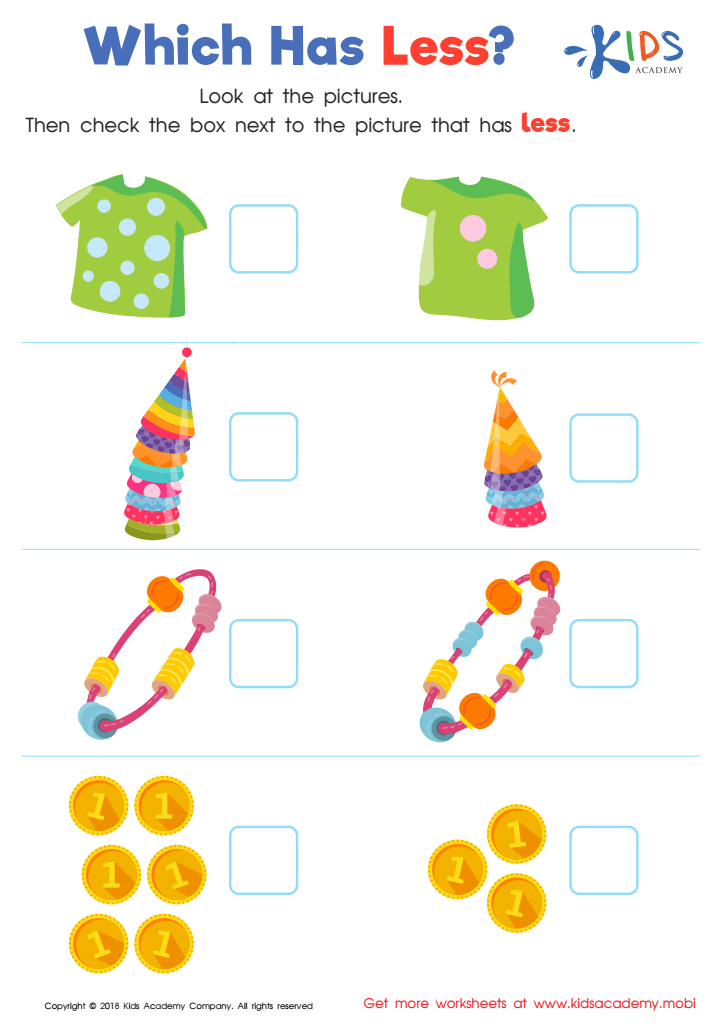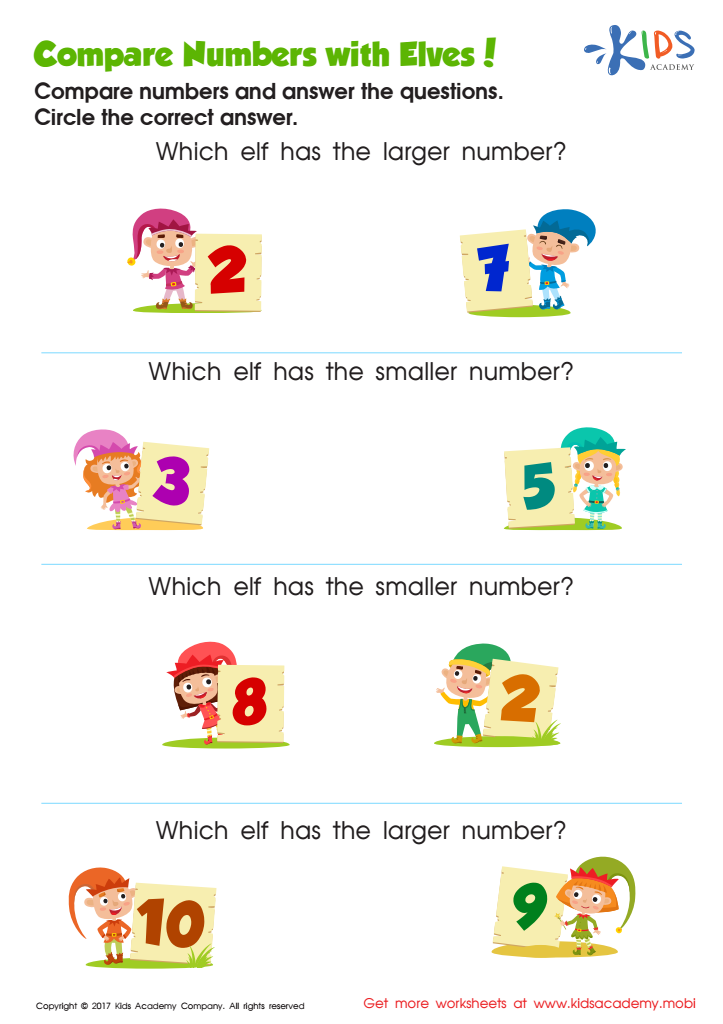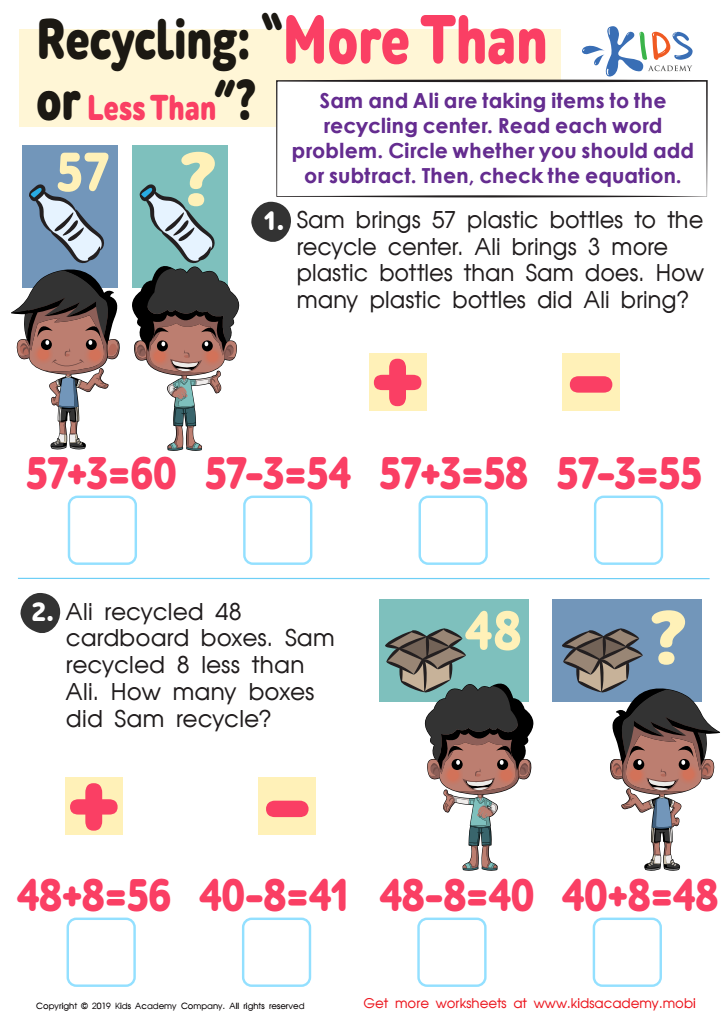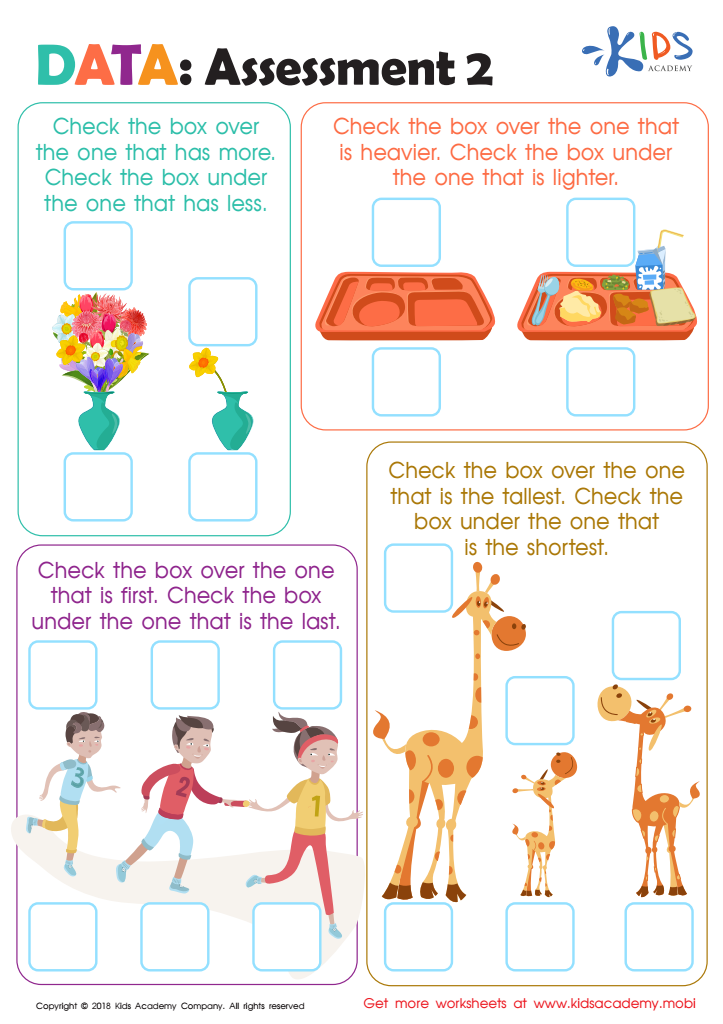Basic Math Skills Comparing Numbers Worksheets for Ages 3-5
4 filtered results
-
From - To
Our Basic Math Skills Comparing Numbers Worksheets are designed for young learners ages 3-5. These engaging and age-appropriate worksheets help children develop foundational math skills by comparing numbers and identifying greater or smaller values. With colorful and interactive activities, kids will boost their confidence in math while having fun. Perfect for preschool and kindergarten levels, these printable worksheets support parents and educators in providing quality early math education. Foster your child's numerical understanding and prepare them for future math success with our thoughtfully crafted comparing numbers practice sheets. Download and print to start learning today!


Which Has Less? Worksheet


Comparing Numbers Worksheet for Kindergarten


Recycling - More or Less Worksheet


Data: Assessment 2 Worksheet
Understanding basic math skills, such as comparing numbers, is crucial for young children ages 3-5 as it lays the foundation for future academic success. Early number sense helps children develop essential thinking skills, such as recognizing numbers, considering their value, and understanding numerical relationships. When children learn to compare numbers, they practice counting, identifying which number is greater or smaller, and developing a sense of order.
For parents and teachers, fostering these skills improves young children's readiness for primary school, where more complex math concepts are introduced. Moreover, comparing numbers enhances problem-solving abilities and supports overall cognitive development. These skills also play a crucial role in everyday activities like sharing toys, distributing snacks, and understanding basic time concepts, subsequently promoting social skills and practical knowledge.
Creating a stimulating learning environment that includes playful, hands-on activities, such as using blocks or interactive games, can make learning engaging and enjoyable. By prioritizing these foundational math skills, parents and teachers help build the young child's confidence, setting them on a path to not only love math but also excel in it, which is invaluable for their overall educational journey and real-world experiences.
 Assign to My Students
Assign to My Students


















